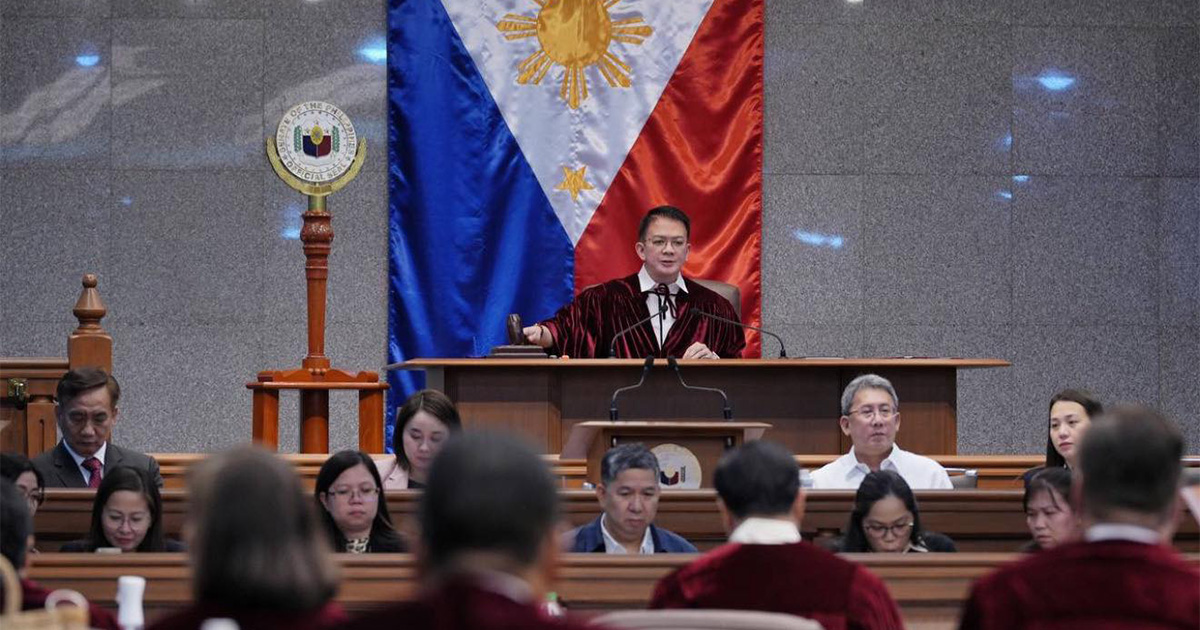Do we need more lawyers in the Senate?
Amid the increasing public pressure on senators to convene as an impeachment court to try Vice President Sara Duterte, questions regarding their qualifications have risen anew.
On June 10, the Senate voted to return the impeachment complaint against Duterte to the House of Representatives. Before the Senator-judges took their oaths, Sen. Bato Dela Rosa moved to dismiss Duterte's impeachment case. It was amended by Senator-judge Alan Peter Cayetano, who moved to return the Articles of Impeachment to the House—with the motion resulting in an 18-5 decision.

Incoming ML Party-list Rep. Leila De Lima, who's part of the House prosecution panel in the impeachment trial, underscored the limits of a senator without a legal background as regards the impeachment trial and called out Dela Rosa in particular.
"Bato is not a lawyer. He simply has no discernment of the legal nuances of constitutional issues as fed to him by his legal staff. If he did, he would know that his speech is poorly argued from a legal standpoint and he will stop talking," she said.
Ahead of the scheduled reading of impeachment articles against the VP, senators have expressed their agreement and disagreement over the impeachment.
Dela Rosa and Robin Padilla—noting they're not lawyers, with the latter even highlighting that he's an ex-convict—have opposed the impeachment. They said they had formalized their positions with resolutions seeking to shut it down. At the same time, Senate President Chiz Escudero has been criticized over delays in the impeachment proceedings—even his take on the recent buzzword "forthwith"—despite having a prestigious law background, including a Master's degree in International Law from Georgetown.
In terms of lawmaking, meanwhile, some Senate bills have raised concerns, like the one that seeks to give the Movie and Television Review and Classification Board jurisdiction over online platforms.
There are five lawyers in the 19th Congress. With the 20th Congress coming near, people have been retrospective on the qualifications for senators being made stricter. Article VI Section 3 of the 1987 Constitution states that aspiring senators must be a natural-born citizen of the Philippines; at least 35 years old on election day; able to read and write; a registered voter; and a Philippine resident for at least two years before election day.
Experts weigh in
Dennis Coronacion, chair of the University of Santo Tomas' Department of Political Science told PhilSTAR L!fe that senators benefit from being armed with legal expertise.
"Kinakailangan sana sa Senado ang competent, meaning, alam nila ang complexities sa paggawa ng batas," he said. "I think it would be best if there are more lawyers in the Senate... mas kailangan natin ng mas maraming abogado to avoid irrelevant and absurd statements."
But Coronacion acknowledged that a law background doesn't automatically equate to good governance. He raised concerns about Philippine democracy becoming elitist if qualifications, particularly educational attainment, come into play.
"Kahit pa mga abogado iyan, ang kanilang skill at competence ay no guarantee na they're going to be just," he said. "Sa kasaysayan ng ating gobyerno, mas nakakatakot pa nga na ang mga gumagawa ng kalokohan ay yung (may alam). They know how the legal system works. Meron silang 'safety measures,' so to speak. Masama man sabihin, at nakakaalarma isipin, pero alam din nila kung paano lumusot."
For Jean Franco of the University of the Philippines' Department of Political Science, what's needed from senators isn't a law degree but rather integrity—something that isn't anchored on a legal background.
"It has really nothing to do with their educational background but rather, their appreciation or respect for the post that they have right now," Franco said.

In terms of lawmaking, she noted that it isn't exclusive to the Senate and the House of Representatives, as non-government organizations and even civil society groups may push for the creation of certain laws.
"Anyone, kahit ano pa ang background mo, you can be a legislator," she said. "What's important is that you are really interested in your job, you are committed to social justice, and you never cease to learn."
Tony La Viña, a constitutional law professor at UP College of Law, told L!fe that being a lawyer is "irrelevant" in becoming a senator or even a politician in general.
"Being a lawyer isn't a determinant of your understanding of the law and your following of the law," he said, pointing out that there are "brilliant lawyers" who have served in public office but didn't do well during their term. "Ang kinakailangan natin sa senator, hindi legal knowledge but good judgment, and ethical and political wisdom."
Dante Gatmaytan, a constitutional law professor at UP College of Law, noted that while lawyers don't have a monopoly on policy-making, legal issues dominate senatorial work.
In crafting laws, he said it would help senators to have "a capable staff with very good lawyers."
The experts also noted that there are good and inclusive legislative measures that weren't necessarily championed by senators-cum-lawyers. These include the Expanded Maternity Leave Law, Expanded Solo Parents Welfare Act, Mental Health Act, and Safe Streets and Public Spaces Act (Risa Hontiveros); Malasakit Center Act (Bong Go); Eddie Garcia Law (Padilla); Filipino Sign Language Act (Nancy Binay); Child Safety in Vehicles Act (JV Ejercito).
Gatmaytan, however, noted that senators who have a law degree can use it as a "tool to inform the public about legal issues as a way to achieve justice."
Filipino voters' decision
For La Viña, qualifying standards for elected public officials aren't necessary.
"To those who represent the people, it's the people who should decide who should represent them."
Ultimately, in light of the composition of the Philippine legislative department, Coronacion said the country's future is in the hands of Filipino voters.
"Kung napakabait ng ating Saligang Batas pagdating sa requirements sa pagiging mambabatas," he said, "dapat ang taumbayan ang magtaas ng requirements."


